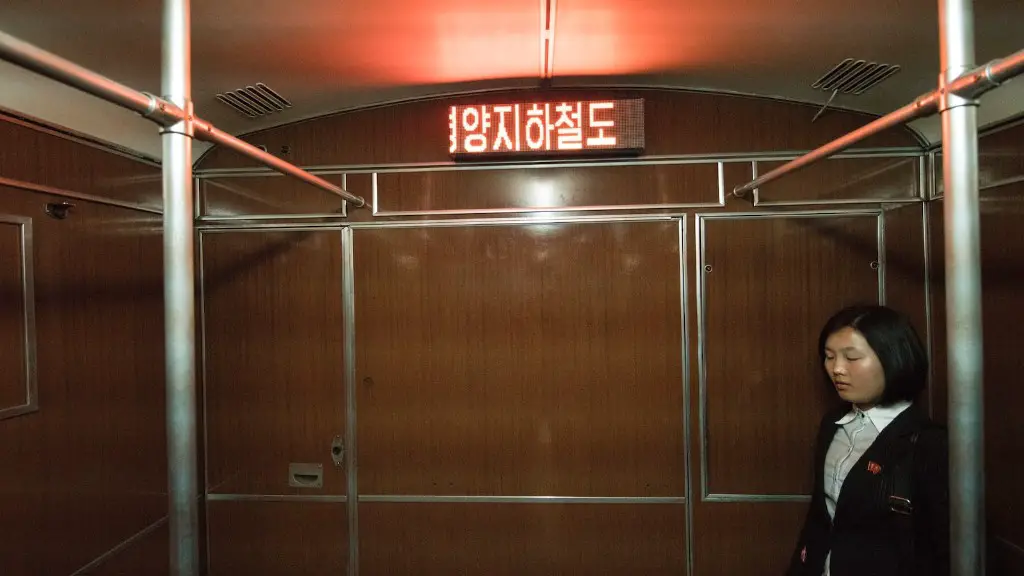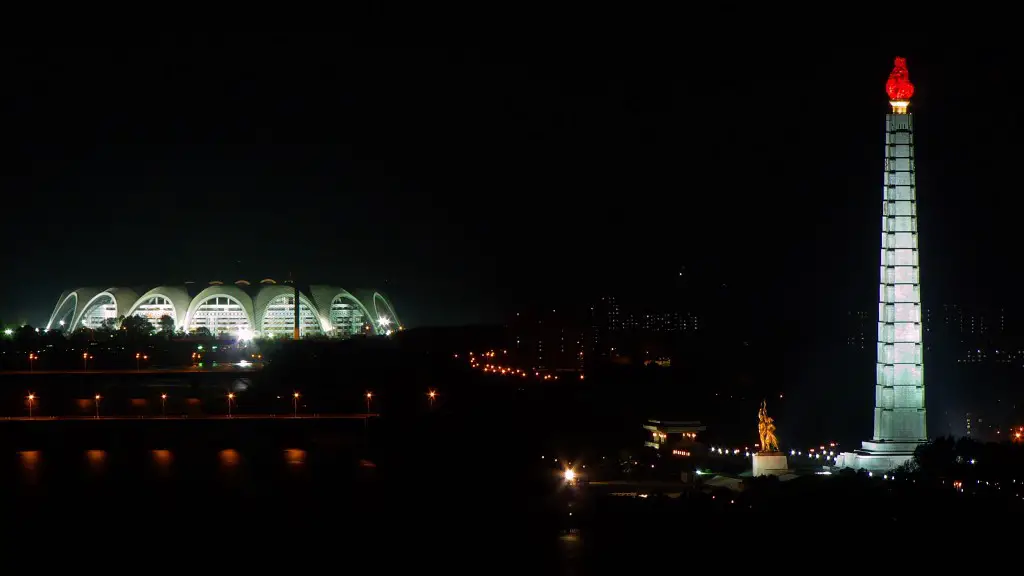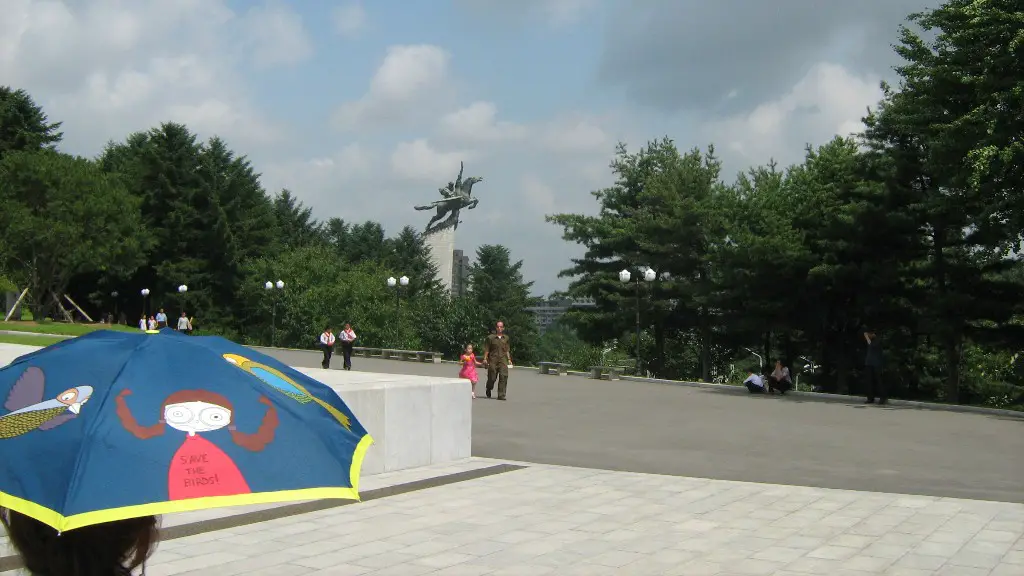Historical background of North Korea as a Communist Country
North Korea has been a communist country since its foundation in 1948. It was established after the division of the Korean peninsula following the Second World War. The Soviet Union, which had occupied the northern part of the Korean peninsula, imposed an authoritarian communist regime in the form of the Korean Workers’ Party, which has remained in power ever since. This party, now known as the Workers’ Party of Korea, is a conservative Stalinist party that follows a one-party system and is led by the Supreme Leader of North Korea, Kim Jong-un.
A Totalitarian Communist Regime
Since its inception, the Workers’ Party of Korea has maintained a very authoritarian regime in North Korea. Its ideology is known as Juche, which is a Stalinist state-centric ideology that combines elements of socialism, nationalism, and traditional Korean values. The state controls all aspects of life in North Korea and has very strict ideological and social controls. North Korea has a highly centralized government, and dissenting opinions or criticism of the government are not tolerated.
It also has a very repressive state media, and North Koreans have access to very limited sources of information other than the government-controlled media. The government has a cult of personality surrounding the Supreme Leader, and citizens are expected to show unwavering loyalty and devotion to the Supreme Leader and to the Workers’ Party of Korea.
Economic Impoverishment
The economic system in North Korea is highly centralized and state-controlled. The economy is heavily reliant on foreign aid, and a large portion of the government’s resources are devoted to military development. As a result, North Korea has suffered from economic stagnation and impoverishment for much of its history. Severe economic sanctions imposed by the United States and other countries have further crippled its economy. Many North Koreans have been living in extreme poverty, with little access to basic goods and services.
Repressive Human Rights Situation
North Korea is notorious for its severe human rights abuses. It is widely considered to be one of the most repressive countries in the world, with a lack of freedoms of expression, association, and movement. There is arbitrary arrest and detention of people who are suspected of being critical of the government, and the government has been accused of grave human rights violations such as torture, political executions, and forced labor.
In addition, North Korea has been widely accused by the UN and other international organizations of having a system of state-sponsored abductions of citizens from other countries, particularly South Korea.
Oppressive Censorship System
North Korea maintains a very oppressive censorship system to control access to information. The government strictly monitors the media and has a system of punishing those who attempt to access foreign, sensitive, or banned information. This system of censorship extends to other forms of expression, such as literature and art, and the government has a system of punishing those who fail to comply with its standards.
Extensive Surveillance System
The government also has a system of extensive surveillance to monitor its citizens. All citizens are expected to report on suspicious activity and to follow the orders of the government and the Workers’ Party of Korea. North Korea has a network of informants that report on any suspected dissidents or other perceived threats to government rule.
Restrictions on International Connections
North Korea has traditionally isolated itself from the rest of the world and has maintained very limited international connections. It has allowed very few international organizations, such as the Red Cross, to operate inside its borders, and it has closely restricted the activities of international journalists and other foreign visitors. Non-Koreans are not allowed to visit certain parts of the country, and North Koreans are not allowed to travel outside of the country without express permission from the government.
Increasing North Korean Defiance
In recent years, North Korea has begun to increase its defiance of international norms and has undertaken a number of provocative actions. It has continued its nuclear weapons program, launched intercontinental ballistic missiles, and is suspected of being involved in cyberattacks and other international crimes.
Declining International Support
The increasing defiance of North Korea has caused concern among the international community, and many countries have taken steps to isolate North Korea and impose sanctions. In addition, many countries have adopted policies of opting for diplomatic solutions rather than military confrontation.
Analysis of North Korea as a Communist Country
North Korea is a communist country, and its leadership has sought to maintain an authoritarian system of rule since the establishment of the Workers’ Party of Korea in 1948. It is an oppressive state that limits the basic freedoms of its citizens and is highly distrustful of the international community. The economy is heavily reliant on foreign aid, and economic sanctions imposed by the United States and other countries have further crippled its economy. It has also undertaken a number of provocative actions in recent years that have caused further dismay among the international community.
How North Korea Oversees its Citizens?
North Korea has a very extensive system of surveillance in place to monitor its citizens. All citizens are expected to report on suspicious activity and to follow the orders of the government. The government also has an extensive system of censorship in place, in which it restricts access to information that it deems sensitive or dangerous to its rule. The government also has a system of punishing those who fail to comply with its standards.
Limits to International Connections
North Korea has traditionally sought to limit international connections and permitted very few international organizations, journalists and other foreign visitors inside its borders. Non-Koreans are not allowed to visit certain parts of the country, and North Koreans are not allowed to travel outside of the country without express permission from the government.
Military Paranoia of North Korea
The leadership of North Korea has continued to be highly paranoid of the international community, and this paranoia has been further increased in recent years due to the United States and other countries imposing economic sanctions. North Korea has also developed and tested nuclear weapons, as well as long-range ballistic missiles, sparking further tensions with the United States and other countries.
International Reactions to North Korea’s Communist Regime
The international community has strongly condemned North Korea’s oppressive regime and the human rights abuses that it perpetrates. The UN and other international organizations have imposed sanctions against North Korea in an effort to pressure it to improve its human rights situation. However, North Korea has been resistant to change and has continued to pursue nuclear ambitions and other provocative actions.



